Find out everything you need to know as a remote worker in Georgia and why Georgia is an ideal country for freelancers from someone who has lived there.
Home of the spectacular Greater Caucasus mountains, global birthplace of wine, Republic of Georgia’s tourism star has been rising ever since Lonely Planet named it a ‘top destination’ for 2018.
Each year, more and more intrepid hikers, history buffs and wine connoisseurs choose Georgia as their next holiday destination. At the same time, the country – particularly its capital city, Tbilisi – has also been gaining popularity as a base for digital nomads and freelancers.
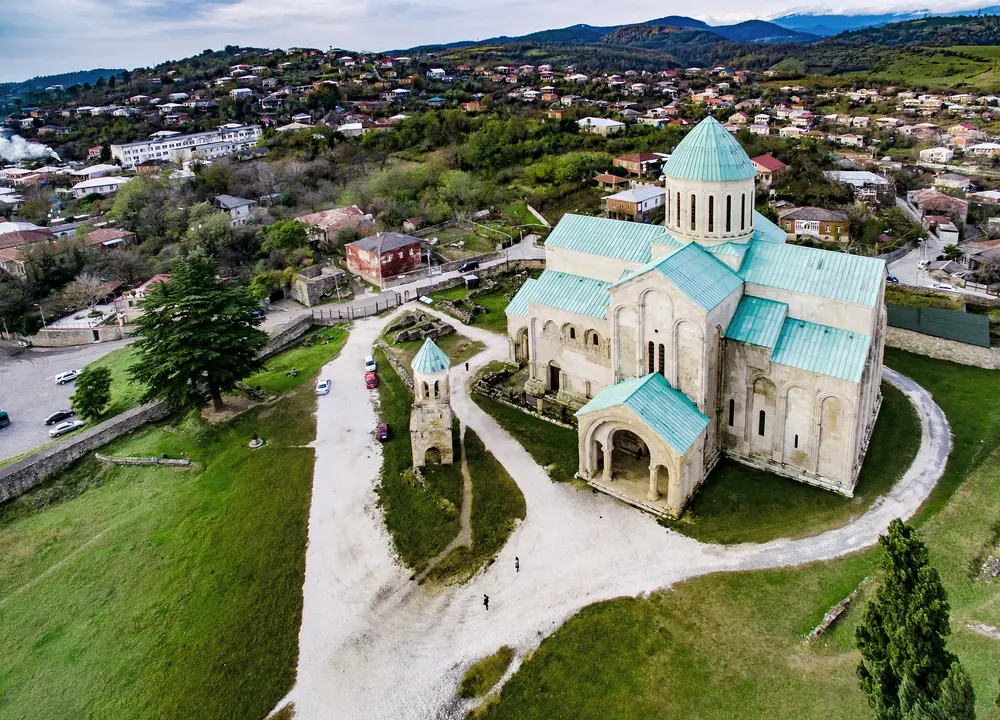
One of Georgia’s biggest perks is a scheme that allows 90-plus nationalities (including US, Australian and EU passport holders) to stay in the country for 365 days visa-free.
The introduction of the ‘Remotely From Georgia’ permit in mid-2020 means it’s still possible to relocate here while borders remain closed to most tourists.
On top of the generous visa conditions and other policies that make it relatively easy to open a bank account, register a small business and pay taxes, many remote workers are drawn to Georgia because of the cost of living – which is very affordable by European standards.
But beyond the convenience factor and budget-friendliness, Georgia’s real appeal lies in its rich history, incredible wine and cuisine, legendary hospitality, and boundless natural beauty.
The chance to live and work in Georgia – and immerse yourself in Georgian culture in the process – is a huge privilege.
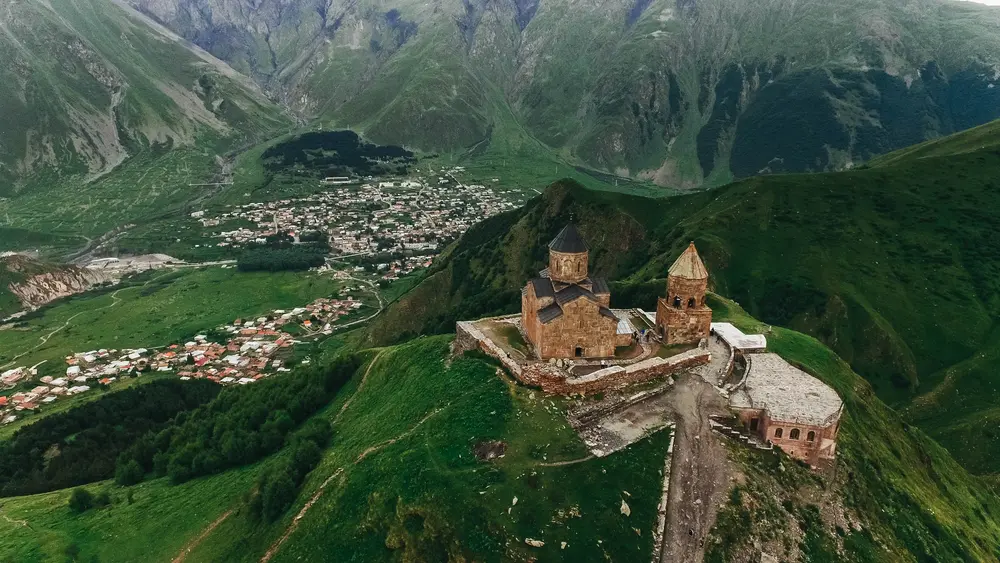
I moved to Georgia at the start of 2020 after visiting several times as a tourist. During that time, I’ve lived in three different cities, travelled all around the country, and experienced most of the highs and lows of expat life.
In this guide, I’ll show you why Georgia is one of the best countries for freelancers and provide practical advice about relocating here.
Read More: European Countries Offering Visas for Freelancers (+ How to Apply)
Living in Georgia
Overall, Georgia is an incredibly easy place to live – as evidenced by the number of people who wind up staying much longer than they initially planned.
Georgia is an overwhelmingly safe country; the healthcare system is good; English is widely spoken; and the mild climate (Mediterranean-esque in some parts) is also part of the appeal.
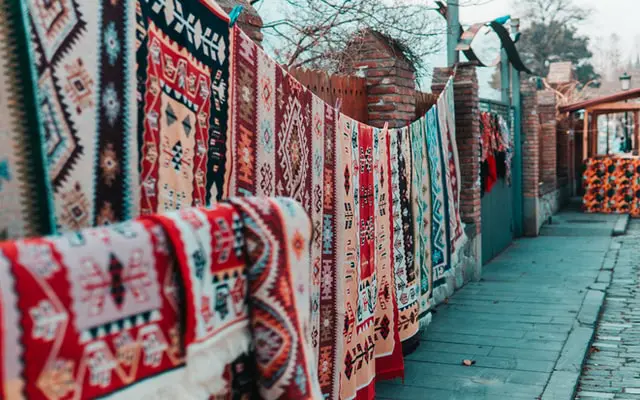
As mentioned, the cost of living is very affordable, even in the capital, and Georgia is generally friendly towards foreign workers and investment.
There are, of course, some drawbacks to living in Georgia: The two issues that are most likely to impact digital nomads are that some products (especially electronics) are difficult to come by, and that air pollution is a problem in Tbilisi in some seasons.
Read More: Check out our handy flight tips and hacks to save money on flights
Deciding which Georgian city to live in
While many head straight to the capital Tbilisi, there are other options for remote workers that want something different.
Tbilisi
Tbilisi is the most popular choice for freelancers. Georgia’s capital has a wide range of accommodation options, great restaurants and bars, and a growing digital nomad scene that makes it easy to meet other people.
Tbilisi is a good base for travelling around Georgia, with overland connections to every corner of the country, direct trains to neighbouring Armenia and Azerbaijan, and an international airport with flights to Turkey, the Middle East, Europe, and beyond.
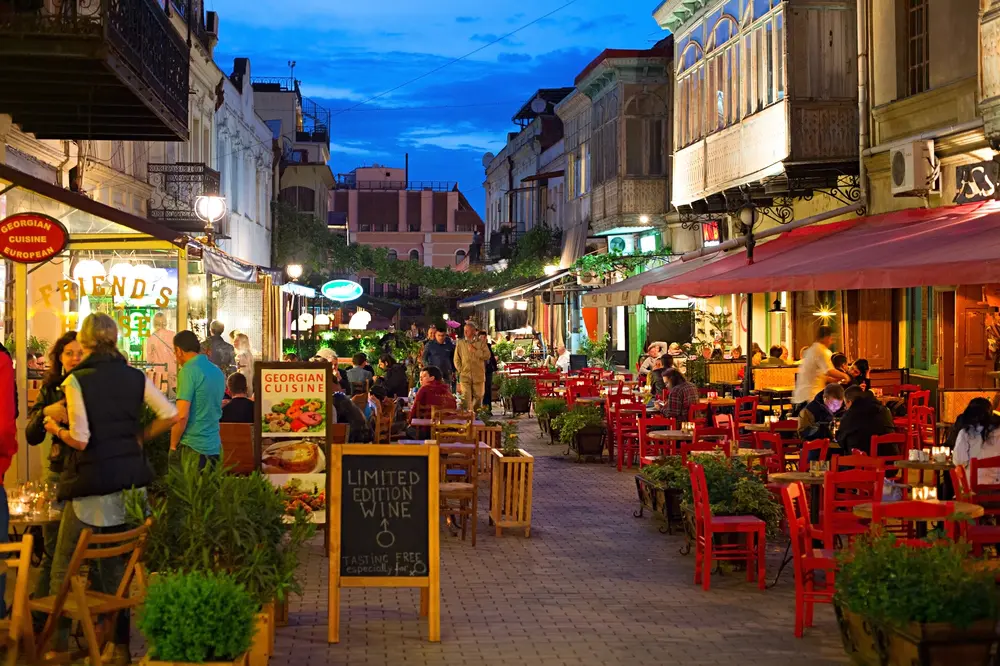
Read More: A Guide to Working and Living in Tbilisi as a Digital Nomad
Batumi
A growing number of digital nomads are now choosing to live in Batumi, the biggest city on Georgia’s Black Sea coast and the capital of the autonomous Adjara region.
Up until now, Batumi has had a bit of a bad reputation as a summer resort city, but that is slowly shifting as more cafes, creative and community spaces open up.
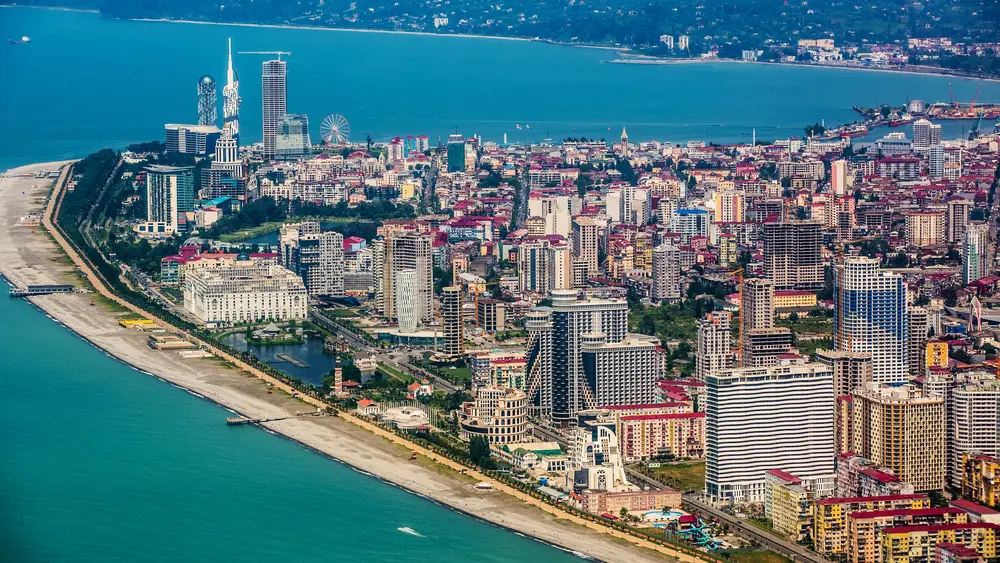
The cost of living in Batumi is comparable to Tbilisi (though prices do go up in summer high season), and the abundance of new high-rise buildings makes it very easy to find a modern apartment for a good price.
The quality of life in Batumi is terrific – not only do you have access to the beach, some of Georgia’s best national parks are right on Batumi’s doorstep. It does however rain a lot!
Kutaisi
Kutaisi is Georgia’s second-largest city and biggest hub in the west. The cost of living in Kutaisi can be more economical than Tbilisi or Batumi, but the compromise is that there’s less of a social/nightlife scene, and it may be more difficult to meet people as a result.
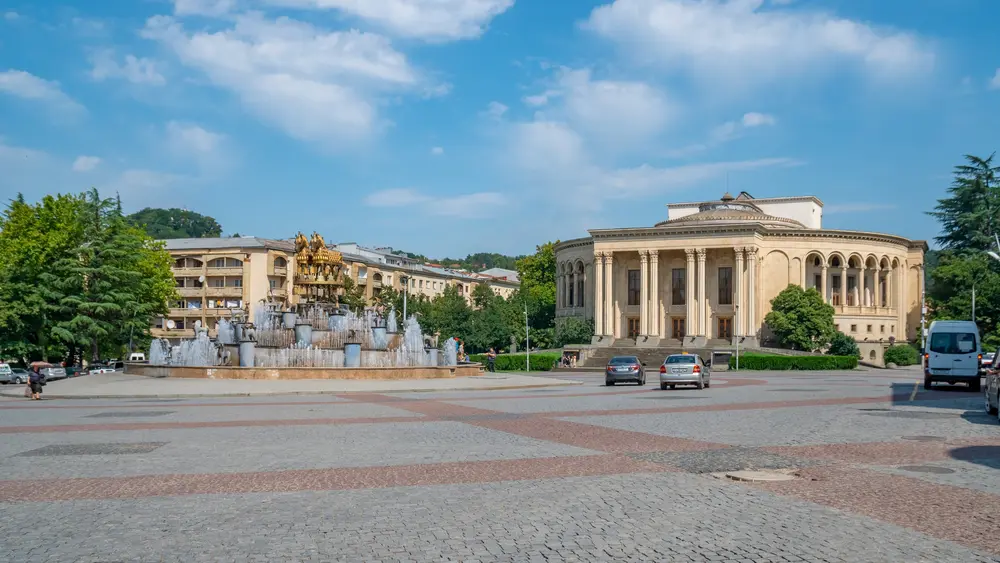
A new co-working space has just opened in Kutaisi so this is likely to change over the coming years. A major plus of living in Kutaisi is having easy access to the airport, which is serviced by budget carriers WizzAir and Ryanair.
Smaller cities including Gori (1.5 hours west of Tbilisi) and Telavi (2 hours east of Tbilisi in Kakheti wine region) also have good infrastructure and are nice places to live if you don’t mind being a bit more isolated.
How to find long-term accommodation in Georgia
Finding apartment rentals and room-shares anywhere in Georgia is very easy when you use a Facebook group such as this one, a real estate website such as myhome.ge, or a platform such as WeHost.
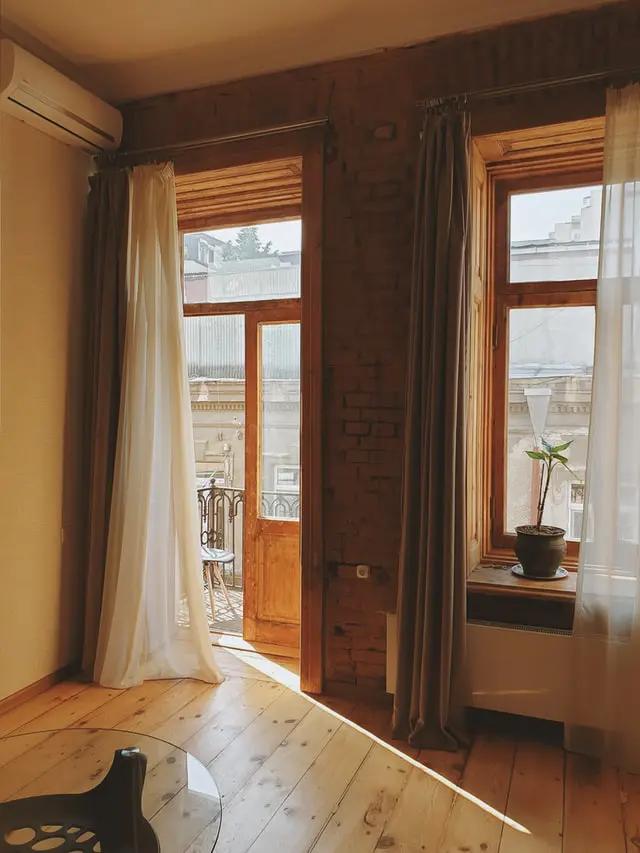
If you don’t want to sign a rental contract and pay bond, Airbnb is very popular throughout the country and many hosts offer generous monthly discounts.
Many things (including real estate) are done through word-of-mouth so you can find some great opportunities if you scout around in person.
Accommodation costs vary from city to city and from neighbourhood to neighbourhood. In Tbilisi, you can expect to pay around 350-500 USD/month for a one or two-bedroom apartment in the centre – significantly less if you’re willing to live further out (viable with the city’s metro system).
Popular neighbourhoods in Tbilisi include Sololaki (the oldest neighbourhood – great atmosphere but older buildings that can be dark and damp); Marjanishvili; and Saburtalo.
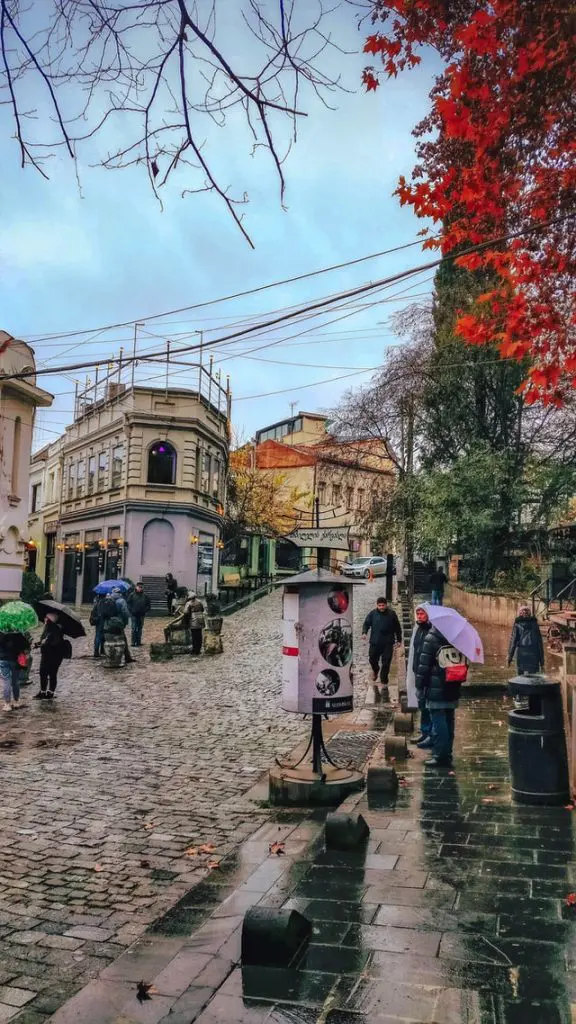
In Kutaisi, you can expect to pay less than that, around 200-300 USD/month for an apartment in the centre. Prices in Batumi are somewhere in between – you can usually find something with sea views for under 350 USD/month.
Generally speaking, apartments come furnished with all appliances, furniture, towels and linens. Note that apartments with an oven are hard to come by, and some older buildings (especially in Tbilisi’s Old Town area) are walk-ups.
The most you’ll ever pay for gas, water and electricity is 40-50 USD/month. Power outages and water cuts are not uncommon, especially in the older Soviet-era buildings.
For this reason, it’s always a good idea to store a few bottles of drinking water under the kitchen bench, keep your devices charged at all times, and have a mobile data plan as a backup in case your WIFI goes down.
Cost of living in Georgia
Aside from rent and utilities, living costs are fairly uniform across the three cities mentioned. If you’re mindful of your spending, you can reasonably get by on 900-1200 USD/month for two people.
Fresh, seasonal produce is abundant in Georgia and there is no shortage of supermarkets, grocery stores and local markets overflowing with fruit and veg. Carrefour is a popular chain with branches established or soon-to-open in every major city. If you’re a home-cook, budget around 40-80 USD/week for groceries for two people.

You could quite easily live in Georgia and never set foot in your kitchen – there are that many terrific (and affordable) restaurants on offer.
Georgian is not a cuisine you tire of easily – there is a lot of regional variety, and many dishes are vegetarian or vegan-friendly by nature. As a rule of thumb, expect to pay around 50 GEL (15 USD) for a generous local meal with wine for two.
Tbilisi has the biggest selection of international restaurants: Middle Eastern, Indian, New York-style pizza, and authentic Thai and Japanese are all accounted for.
Transportation in Georgia is also very affordable. Tbilisi has a metro and bus system, and Batumi and Kutaisi both have good bus networks. Fares cost 50 tetri (around 15 US cents) per trip. Taxis cost around 4-10 GEL (1-3 USD) when booked with an app.
Bolt is the most popular, and local alternative Maxim also has coverage in smaller cities and towns. Travelling around Georgia, intercity marshrutka (minivan) and train fares range from 5-20 GEL (1-6 USD) depending on the route.
Example living expenses (for Tbilisi):
- A week’s worth of groceries: 40-80 USD
- A meal in a local restaurant: 15-25 USD
- A glass of local wine: 1-3 USD
- Gym membership for one month: 25-40 USD
- Metro or bus fare: 15 US cents
- 5 GB of mobile data: 3.60 USD
Read More: 10 Budgeting Tips for Freelancers & Digital Nomads
Learning Georgian
Even though English is widely spoken, it’s still a good idea to learn at least some basic Georgian. It’s a difficult language to wrap your tongue around, but it’s worth the effort – it will help you connect with locals and make travelling in remote areas a lot easier.
There are a range of apps available to learn the Georgian alphabet (I recommend this one). A private language tutor in Tbilisi costs around 60 USD for eight lessons.
Working from Georgia
Georgia is well set-up for freelancers and the digital nomad scene is continuing to develop. Of the three cities mentioned, Tbilisi has the best-established digital nomad scene, with a range of coworking spaces and networking organisations.
Kutaisi and Batumi are both viable places to work from if you don’t mind sacrificing a bit on the social aspect, and perhaps working from home more often than working from a cafe or coworking space.
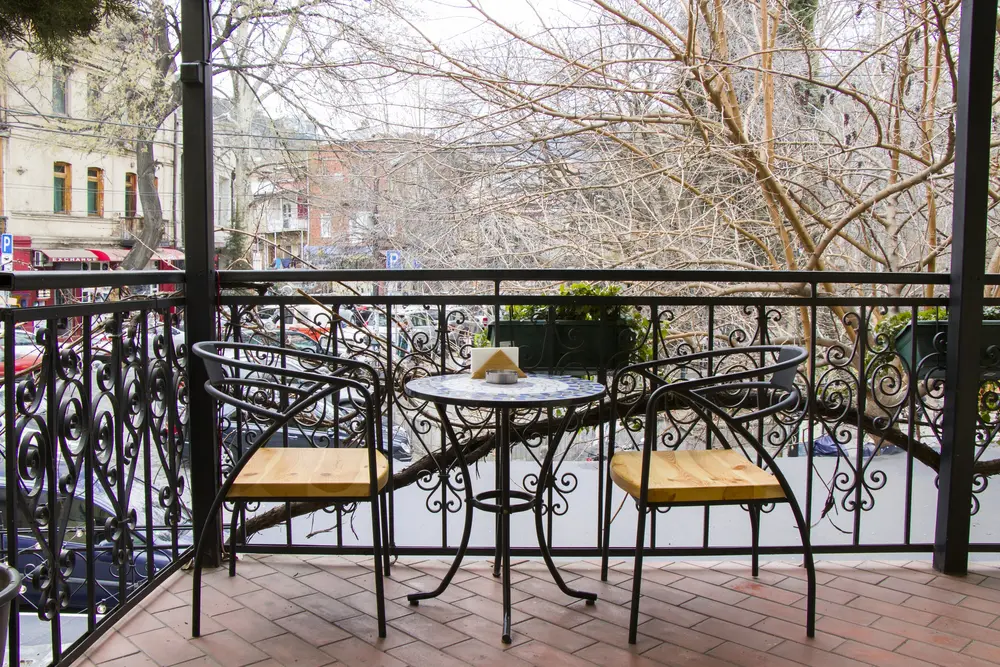
Internet speeds in Georgia
4G internet coverage is great in Georgia – even in remote mountainous areas – and WIFI is ubiquitous in every city and town. The majority of cafes, restaurants and hotels offer free WIFI for customers. Speeds average 20 Mbps up/down.
WIFI is reliable, but as mentioned, power outages do occur so it’s a good idea to have mobile data as a backup. Magti is considered the best mobile provider and has similar 4G speeds (20 Mbps up/down or slightly higher). It’s quick and easy to set up a local sim at a Magti branch – staff speak English and will organise everything for you.
A 5GB data package costs 12 GEL (3.60 USD), while an unlimited 30-day data package costs 150 GEL (45 USD). Unused data rolls over the next time you recharge.
Read More: 5 Downsides of Being a Digital Nomad (& How to Overcome Them)
Co-working spaces & cafes
The majority of cafes in Tbilisi are laptop-friendly and staff have no issue with you setting up for the day and using the free WIFI (as long as you’re a paying customer).
Popular cafes among digital nomads are Coffee LAB (one of the few cafes that roasts their own beans), Skola (which conveniently transforms into a wine bar at night), and Coffeesta (a great budget-friendly choice).
There are fewer cafes to choose from in Kutaisi and Batumi, but there are options available.
Dedicated coworking spaces are becoming popular as well, and there are now at least a dozen to choose from in Tbilisi alone.
Impact Hub (from 9 USD/day), LOKAL Tbilisi (from 7 USD/day) and Makers (90 USD/month) all offer quiet, work-friendly environments and the usual coworking facilities, including reliable WIFI.
The Work From Georgia initiative, which launched in 2019, is something you should look into if you plan to base yourself in Tbilisi. The platform connects digital nomads and local businesses, offering workspaces in offices around the city free of charge.
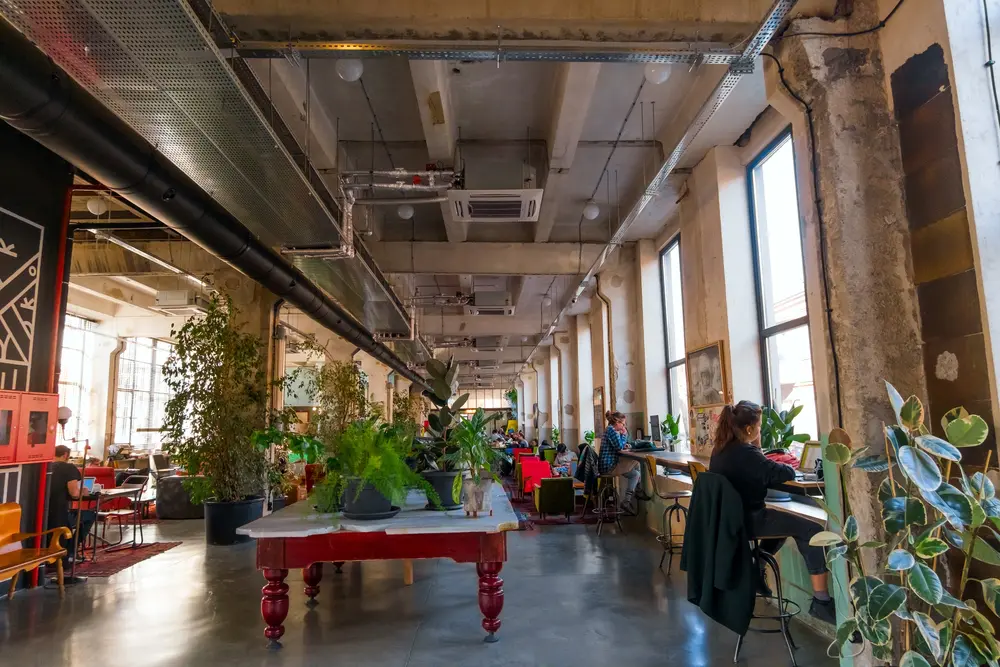
Read More: Carry Your Things Securely With These Backpacks for Remote Workers
The digital nomad scene in Georgia
As Georgia’s reputation for being a digital nomad hotspot grows, so do opportunities for networking and socialising – both with other foreigners and with locals.
Tbilisi’s social calendar is packed with cultural festivals, film screenings and other events, while LOKAL Tbilisi coworking and co-living hosts a year-round program of events specifically for digital nomads.
There are dedicated Facebook groups for digital nomads to connect in Tbilisi, Kutaisi and Batumi. Based in Tbilisi, the Weekend Travelers Georgia group organises short hiking and sightseeing trips for expats and long-term travellers and is a great way to meet people.
Registering a business & paying tax in Georgia
Foreign citizens automatically become tax residents of Georgia after 183 days in-country within a 12-month period. It’s important to understand your obligations when it comes to paying tax in Georgia and in your home country.
Freelancers who meet the criteria can register as an Individual Entrepreneur in Georgia and pay 1% income tax.
Registering a business, opening a local bank account and filing monthly tax declarations is all fairly straightforward – but it’s recommended to hire a local accountant to guide you through the process. Expat Hub is a terrific resource for this.
Moving to Georgia in 2021 – the new ‘Remotely From Georgia’ permit
If Georgia sounds like the kind of place you’d like to freelance from, the new ‘Remotely From Georgia’ permit makes it possible for digital nomads to enter the country in 2021.
It’s important to note that this is an entry permit and not a visa – once you cross the border into Georgia, your stay is subject to the same conditions if you entered as a tourist.
To be eligible for the permit, you must be able to demonstrate that you earn at least 2,000 USD/month and hold a health insurance policy that’s valid for at least 6 months. You must also agree to undergo a mandatory hotel quarantine on arrival.
It’s free to apply for a Remotely From Georgia permit – find the online form here.
Living and working in Georgia: Final thoughts
Georgia is still an emerging location for digital nomads. It’s not perfect by any means, but the pluses outweigh the minuses, especially when you factor in cost of living, the generous visa policy, and the ease of registering as an Individual Entrepreneur.
Tbilisi remains the most popular choice among freelancers, but looking beyond the capital, there are plenty of smaller cities in Georgia that also make for a good home base.
Most digital nomads in Georgia will probably agree when I say there’s a spirit here that’s both magnetic and re-energising. For freelancers, there’s no better place to fuel your creativity.
Written by Emily Lush from Wander-Lush
If you’re interested in other places suited to digital nomads then make sure to check out our guide for remote workers in Tbilisi, Zagreb, Budapest, and Romania or the best cities in Southeast Asia.
Read More:

